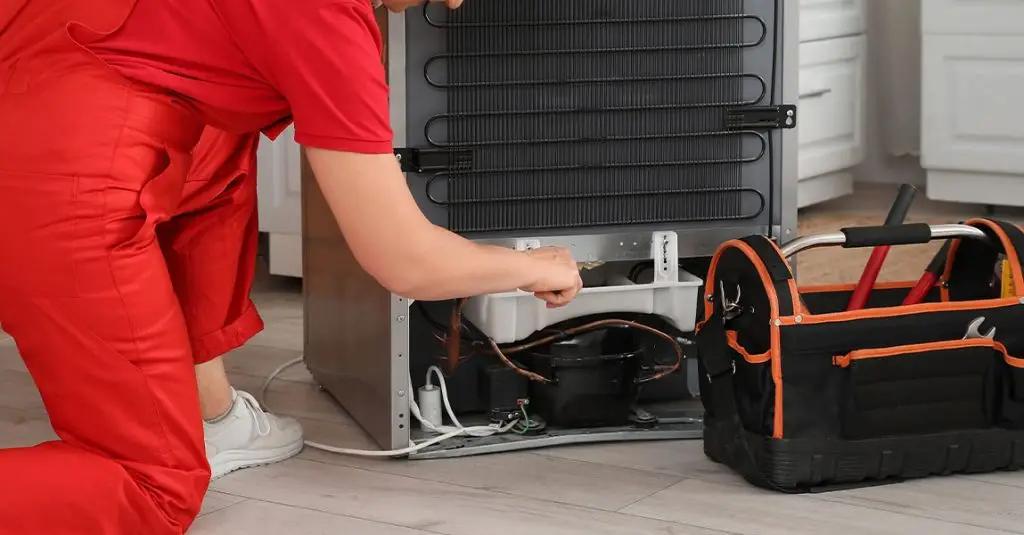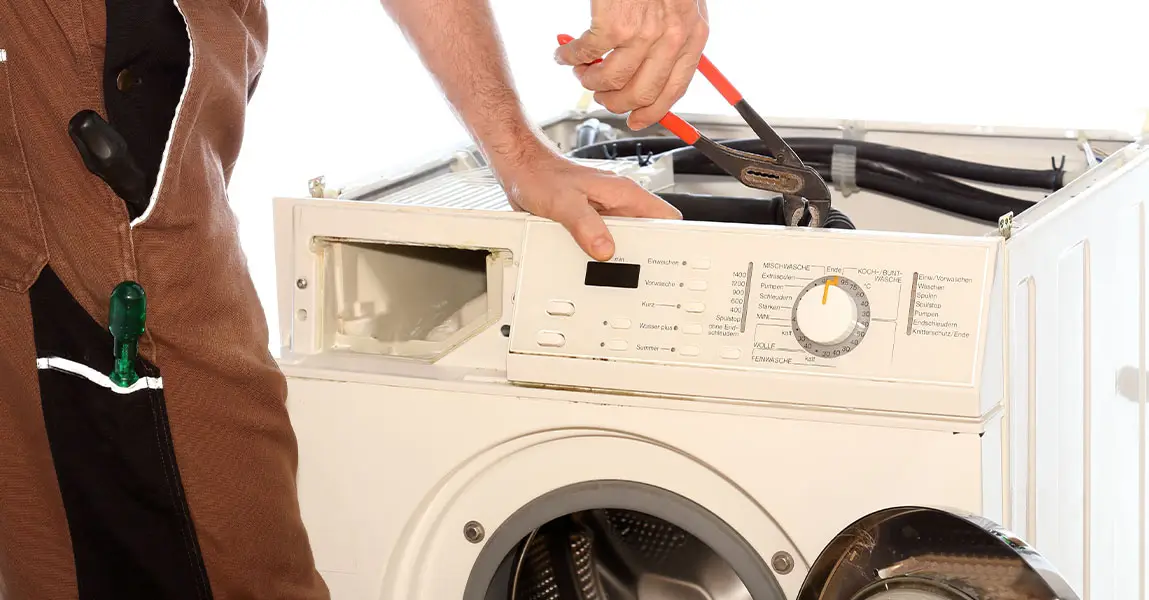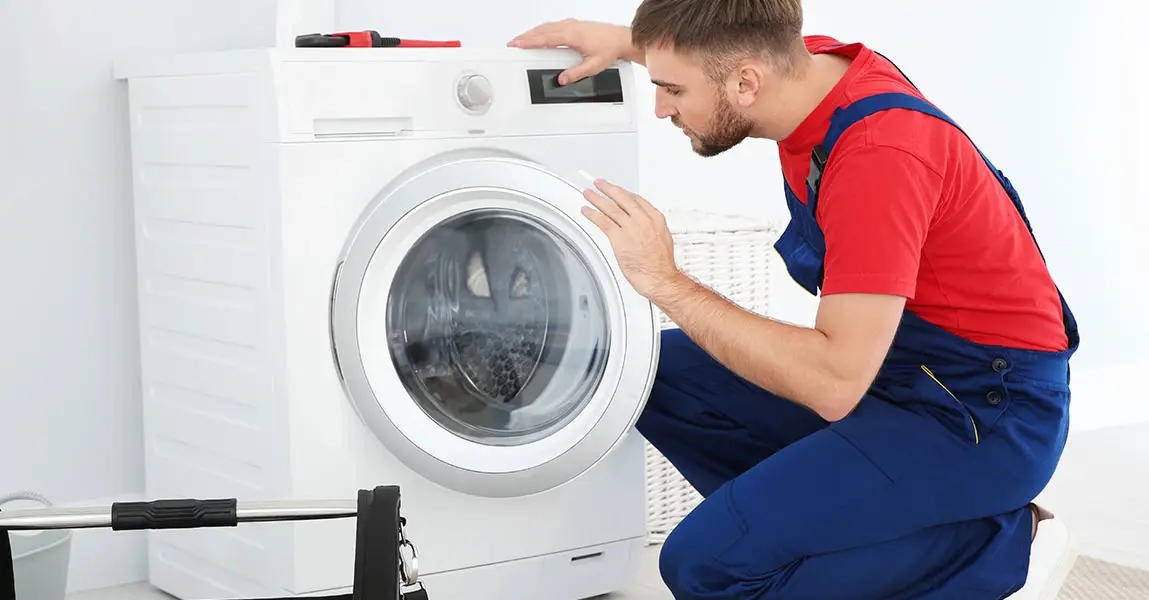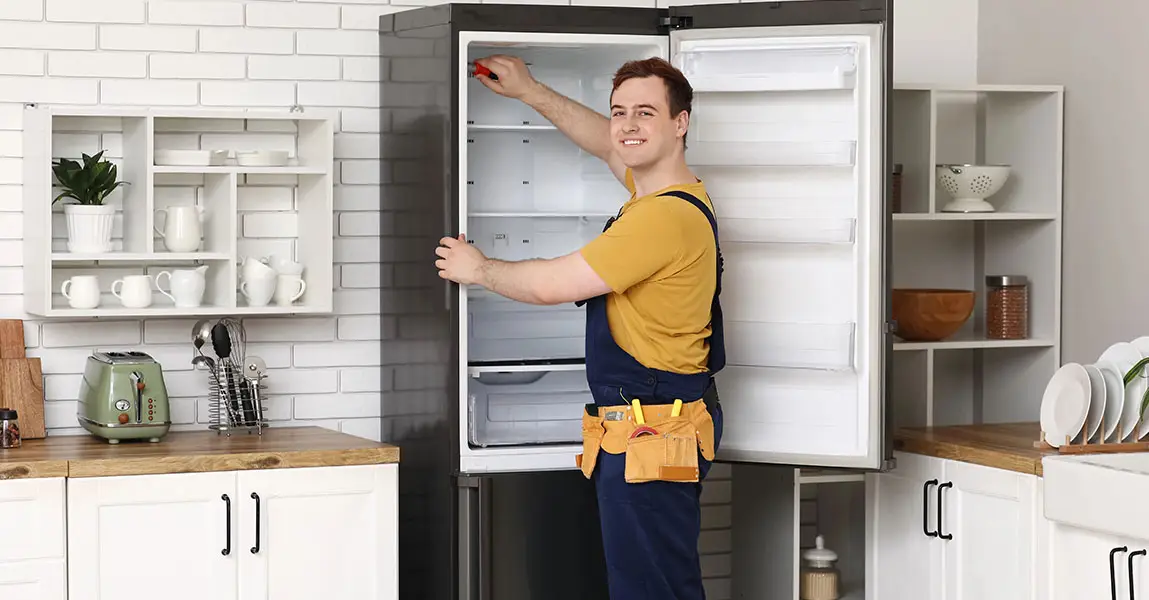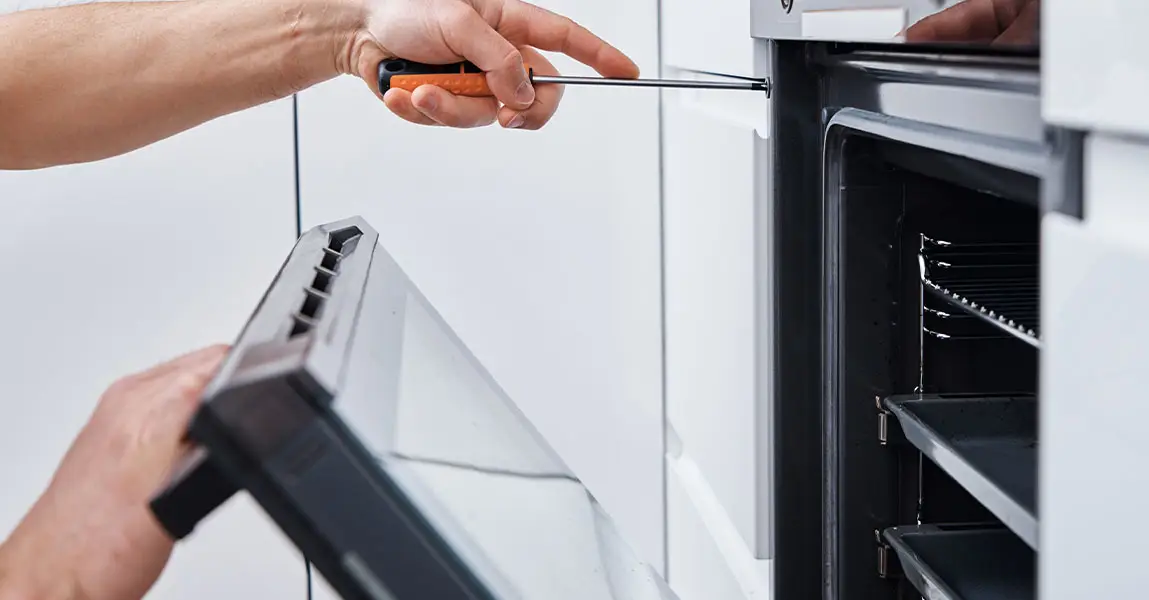A fridge that suddenly starts making a clicking sound and then stops can be worrying. Most people notice the sound coming from behind the appliance, often near the compressor. Sometimes it happens once in a while, but if it becomes frequent or the fridge stops cooling altogether, the clicking noise is usually a sign that something electrical or mechanical is struggling to function properly. Understanding what causes this noise and what to do about it can save both time and money.
Understanding the Source of the Clicking Noise
The clicking sound in most fridges comes from a relay or overload protector. This small component starts and stops the compressor, which is responsible for cooling the appliance. When the relay clicks, it signals the compressor to turn on. If the compressor fails to start, the relay clicks again as it resets. Repeated clicking is a sign that the compressor is either drawing too much power or not receiving enough.
We often find that the cause is not the compressor itself but the electrical system supporting it. A weak relay, dirty condenser coils, or poor airflow can increase electrical load, forcing the compressor to shut down for safety reasons. When that happens, the clicking continues until the issue is fixed.
When the Problem Starts Gradually
Many fridge failures do not happen overnight. A clicking sound may start quietly, sometimes just once or twice a day. Over time it becomes more frequent as the compressor struggles to start. You may also notice the temperature inside the fridge rising, or the motor running longer than usual before shutting off.
In this stage, a basic inspection can sometimes prevent full breakdown. Checking the back of the fridge for dust buildup, making sure air can circulate freely, and listening carefully to the timing of the clicks can reveal useful clues. Short intervals between clicks usually point to a compressor overload, while longer intervals often suggest electrical or control board issues.
Common Causes of Clicking and Stopping
Several factors can cause a fridge to click and then stop. Knowing each one helps you understand what needs attention before calling for help.
1. Faulty Start Relay
The start relay sends power to the compressor. When it wears out, it struggles to deliver the proper current. The relay tries to start the compressor, fails, and clicks as it resets. This is one of the most common issues behind the sound. Replacing the relay is simple for a technician but should not be attempted without experience since electrical shock is possible if done incorrectly.
2. Overheated Compressor
If the compressor overheats, it shuts off automatically to prevent damage. This can happen when condenser coils are clogged or when the fan motor fails to cool the system properly. Once the compressor cools down, it tries again, causing another click. If this repeats often, the compressor may eventually fail completely.
3. Dirty Condenser Coils
Coils covered in dust or grease block heat release. This forces the compressor to work harder, increasing its temperature and causing the protective relay to shut it off. Cleaning the coils at least twice a year can prevent this issue. A soft brush or vacuum cleaner attachment is enough to keep them clear.
4. Malfunctioning Temperature Control Board
The control board manages power distribution between different components. If it sends inconsistent signals, the compressor can turn on and off rapidly. This irregular switching leads to clicking sounds and shortened compressor life. Replacing the control board requires testing for voltage output and is best handled by a qualified technician.
5. Defective Compressor
In some cases, the compressor itself is failing. When internal mechanical parts seize or short-circuit, it cannot start even though power is available. The relay continues clicking as it attempts to restart it. Unfortunately, compressor replacement can be costly and is sometimes not worth doing for older fridges.
What Happens Before a Complete Stop
The final stage of this problem is when the fridge stops cooling entirely. Before reaching that point, several signs usually appear. You might notice the fridge light working but no humming from the motor. The inside temperature rises quickly, and the clicking continues every few seconds. Frost buildup on the freezer walls or water pooling underneath may also appear.
This stage means that safety features are actively shutting the compressor down to prevent overheating. Continuing to plug and unplug the fridge will not solve the issue and can cause further damage. At this point, professional inspection is the only safe option.
Why Quick Action Matters
Ignoring a clicking sound may seem harmless, but it can create a chain of damage. When a compressor constantly tries to start, it puts stress on the entire electrical system. Wires and connections heat up, components age faster, and power consumption rises. If left unchecked, a small repair can turn into a complete replacement.
Taking early action often prevents these situations. Even if the fridge still cools normally, calling for an inspection when you first hear the sound can extend the appliance’s life. A professional can test voltage, current, and pressure levels to pinpoint the cause.
Simple Steps Before Calling for Help
Although internal repairs should be left to professionals, there are a few safe checks we can perform at home before requesting service.
First, unplug the fridge and look behind it. If the coils are dusty, gently clean them. Ensure the fridge stands a few inches away from the wall to allow proper airflow. Check that the plug fits firmly into the outlet and that no extension cord is used. A weak or loose connection can also cause clicking.
Next, listen to the duration between clicks. If it happens every few seconds, it usually points to a compressor overload. If it happens only occasionally, it may be a sign of inconsistent power supply. Either way, keeping the fridge off until a technician arrives prevents further stress on the system.
When to Call for Professional Help
If the fridge keeps clicking after cleaning and checking power connections, the issue is likely internal. In that case, a certified technician should inspect it. The problem may lie in the compressor, start relay, or control board, all of which require testing tools.
For those living locally, the best starting point is to look for reliable appliance repair in Calgary. A trained professional can diagnose electrical and mechanical problems safely, replace worn parts, and verify that the compressor operates at the correct voltage and pressure.
Timely repairs prevent food loss and unnecessary energy consumption. It also ensures the fridge maintains consistent temperature, which helps preserve both food quality and appliance longevity.
What a Technician Usually Checks
During an inspection, the technician first measures voltage at the outlet to confirm stable power supply. They then test the start relay and overload protector with a multimeter to see if continuity exists. If those parts are fine, attention turns to the compressor windings.
If the compressor shows proper resistance but still does not start, the problem often lies in the relay or control board. If the windings are open or shorted, compressor replacement may be the only solution. In some cases, technicians also check the condenser fan motor to ensure proper airflow across the coils.
Understanding these steps helps homeowners know what to expect during service, reducing confusion and ensuring transparency.
Preventive Maintenance for Long-Term Reliability
Once the issue is solved, prevention becomes the focus. Keeping the coils clean and ensuring the door seals close tightly are two of the most effective habits. Avoid overloading the fridge, as restricted airflow increases internal temperature and stresses the compressor.
Also, leave a small gap behind and above the appliance to let heat escape easily. Regularly checking for unusual sounds, vibrations, or warm air blowing from the back can alert you to problems early.
Scheduling an annual inspection can make a big difference. It allows a technician to check refrigerant levels, inspect wiring, and verify thermostat accuracy before problems appear. Even though this takes little time, it can extend the life of the appliance by years.
How to Talk to a Technician
When describing the issue to a repair technician, be specific. Mention when you first noticed the clicking, how often it happens, and whether cooling performance has changed. Providing this information helps the technician narrow down the cause faster.
You can also ask what parts were tested and what their readings were. Understanding the process not only builds trust but also helps you maintain the appliance better in the future.
Cost Considerations
The cost of repair depends on the part that failed. Replacing a start relay or overload protector is usually inexpensive compared to a compressor replacement. Labor charges vary depending on accessibility and testing time.
However, small repairs are always cheaper than waiting until the compressor burns out. Acting at the first sign of clicking can make the difference between a simple fix and full appliance replacement.
If the fridge is more than ten years old and needs a new compressor, consider the repair cost versus the price of a new model. Technicians can help estimate expected lifespan after repair to guide your decision.
When to Replace Instead of Repair
Sometimes, repairing may not make sense. If the compressor has failed completely, the cost of replacement often exceeds half the price of a new fridge. Energy efficiency also declines over time, meaning older units may consume more electricity even when working properly.
However, if the fridge is only a few years old or under warranty, repair is often worthwhile. Most manufacturers provide a limited compressor warranty that covers parts for several years, though not always labor. A technician can confirm if your model qualifies for any coverage.
To avoid uncertainty, scheduling a diagnostic service is always the first step. You can contact us to arrange a professional inspection and receive an honest assessment before deciding whether to repair or replace.
FAQ
Why does my fridge click every few seconds but still cools normally?
It often means the start relay is beginning to wear out. The compressor still starts for now but struggles slightly each time. A technician can test the relay to confirm.
Can a power surge cause the clicking sound?
Yes. Sudden voltage spikes can damage the relay or control board, leading to intermittent clicking. Surge protectors help prevent this kind of damage.
Is it safe to keep the fridge running while it clicks?
If the sound is occasional and cooling remains stable, it is safe for short periods. However, frequent clicking should not be ignored as it can damage internal components.
How can I tell if the compressor has failed?
When you hear constant clicking but no humming or vibration from the compressor, it likely means it has failed or lost power. Testing with a multimeter is needed for confirmation.
How often should I clean condenser coils?
At least twice a year. More often if you have pets, since hair and dust quickly build up behind the fridge. Regular cleaning reduces strain on the compressor and prevents overheating.

